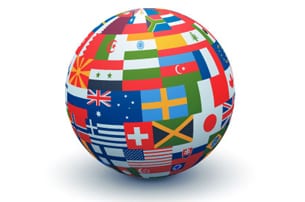Translation and interpretation 101
With the amount of international conferences hitting our shores, it’s imperative that conference organisers hire translators and interpreters for non-English speaking delegates. But where would you find such a person and, once found, how do you get the best out of your translator or interpreter? We tell you how…
There’s so much that goes on behind the scenes when planning a conference, exhibition or event. And with international conferences the preparation is even greater. What about the people who can’t speak our language? How do we accommodate them? Well, luckily there are people who’ve got this covered.
“Interpretation is a fascinating but little known area of translation,” says Joyce Trocki, Translations & Interpreters Networks of Southern Africa (TINSA) coordinator. “Interpreters have to be able to listen to and immediately transpose into another language the words they’ve just heard. The diversity and complexity of subjects interpreted and the conditions in which the interpreters work sometimes demand truly remarkable performances,” she adds.
An important tip for conference organisers, explains Trocki, is to approach interpreters during the initial planning stages. “This way there’s no panic when it comes to sorting out the nitty gritty details of the event.”
The South African Translators’ Institute (SATI) has been representing interpreters and translators for 60 years. Executive director Marion Boers gives Meetings SA the top 10 recommendations for getting the best out of interpreters:
- Use a professional. Not everyone who knows two languages can interpret successfully.
- Use an accredited interpreter – someone who’s been tested by a professional organisation means you’re getting quality.
- Remember to include travel, transfers and accommodation costs for your interpreters, as well as meals or a daily allowance.
- Team work is essential. In a conference setting, interpreters work in pairs because the work is mentally demanding.
- Remember interpreters aren’t machines. Don’t expect them to be on duty during tea and lunch breaks.
- Equipment is key. Without the right equipment your interpreters can’t do their job. Use a reliable supplier.
- An on-site technician is crucial. If there’s a problem with the equipment, the interpreter won’t be able to sort it out.
- Make sure the interpreters can see the speaker and the stage. If a speaker is referring to a Power Point presentation and the interpreter can’t see what’s displayed, they may be unable to interpret.
- Preparation improves quality. Provide the interpreters with background information about the conference, the full programme, abstracts and papers, if they’re available well in advance. The interpreter isn’t a specialist in the conference topic.
- If there are breakaway sessions you may need extra interpreters.
It’s quite simple after all, don’t you think?







